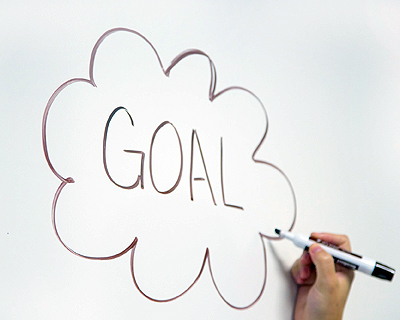Career

Most students expect to work after college graduation. However, your job search shouldn't begin when you graduate. Career planning and preparation should occur throughout your college studies.
It takes the average college graduate three to six months to secure employment after graduation. You need a career seeking strategy and a little experience to stand out.
As a future employee, a college student with a disability faces unique challenges. Like other students, you need to find a way to meet the specific qualifications of the desired job. You also need to demonstrate that you have transferable skills - in other words, skills you've acquired through education and previous work experiences that can transfer to a new employment situation.
How Can You Get Started?
To get started, use the CAREERS acronym:
C is for Careers.
Think about what interests you. Be imaginative, then narrow it down.
A is for Academics.
Determine which academic programs best suit your career goals.
R is for Research
Research careers that spark your interests, maximize your strengths, and minimize your weaknesses.
EE is for Experiential Education.
Practice job search skills. Apply for internships. Ask for informational interviews and try other work-based learning opportunities.
RS is for Relevant Skills.
Use on-the-job experience to learn practical "real world" skills. Apply what you've learned in school to the workplace. Test which accommodations work best for you.
Resources
Careers
- Careerbuilder.com
Explore careers and experiment with the salary calculator. - Find Which Careers Fit You
Take a career quiz and browse career profiles. - Explore Career Options
Learn about occupations, explore industries, consider options. - ITCareerPaths
Learn what kinds of technology careers are in demand, what those careers are like, and how to contact employers who are looking for individuals with your set of skills. - People with Disabilities at Work
A resource guide to achieving economic independence and inclusion through employment and entrepreneurship.
Academics
- Assess Yourself
Identify your accomplishments and take assessments to find a career that uses your strengths. - Gain Skills: Find Training and Certifications
Identify the skills you need to meet your career goals. - Soft Skills Search
Find an occupation based on the soft skills you have or are planning to learn in college. - Tools and Technology
Learn about the tools and technology you may need to know how to use in your future occupation.
Research
- Career PayScale
Research education requirements, pay range, and number of jobs available in careers of interest. - Career Videos
Explore what it's like working in specific occupations. - Occupational Outlook Handbook
Learn about your prospective career, including training or education needed, expected earnings and job prospects, what the job entails, and possible working conditions. - Research Employers
Compare and contrast specific companies.
Experiential Education
- STEM Career Cluster
Explore careers in science, technology, engineering, and mathematics. - It's Your Career: Work-Based Learning Opportunities for College Students with Disabilities (publication)
Read about different types of work experience you can gain before graduation. - It's Your Career: Work-Based Learning Opportunities for College Students with Disabilities (video)
See students with disabilities talk about work-based learning experiences. - Monster College
Find career and job search advice, news, networking, internships, and jobs.
Relevant Skills
- Access to the Future: Preparing College Students with Disabilities for Careers (publication)
Find tips on how to gain work-based skills. - Access to the Future: Preparing Collge Students with Disabilities for Careers (video)
See how services and programs can be made accessible. - Job Accommodation Network
Learn about workplace accommodations. - Learn and Earn: Tips for Teens (publication)
Find ideas about gaining work-based skills and how to develop a team for success. - Learn and Earn: Tips for Teens (video)
Find out how other students with disabilities benefited from work-based experiences.